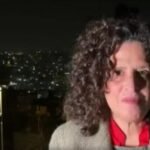New Syrian authorities launched security measures on Thursday in a coastal region where 14 police officers were killed a day earlier, vowing to pursue the “remnants” of the ousted Bashar al-Assad government blamed for the attack, state media reported .
The violence in Tartus province, part of the coastal region where many members of Assad’s Alawite sect live, represents the deadliest challenge yet to the Sunni Islamist-led authorities that toppled him from power on December 8.
Members of the Alawite minority, an offshoot of Shiite Islam, have held wide influence in Assad-led Syria, dominating the security forces he deployed against his opponents during the 13-year civil war and during decades of bloody repression by his police force to suppress dissent to suppress condition.
Security forces launched the Tartus operation to “control security, stability and civil peace and pursue the remnants of Assad’s militias in the forests and hills,” state news agency SANA reported.
An “ambush” by forces loyal to ousted President Bashar al-Assad has killed 14 members of the Syrian police in western Syria, the interim government said on Thursday. The new Syrian interior minister said on Telegram that ten police officers were also injured by “remnants” of the al-Assad government in Tartus.
The crackdown was announced as Damascus authorities warned against an attempt to foment sectarian strife after a late November video showing a fire at an Alawite shrine in Aleppo circulated on social media. The Interior Ministry said unknown groups carried out the violence and that its forces were working “day and night” to protect religious sites.
Hayat Tahrir al-Sham (HTS), the former al-Qaeda affiliate that led the rebel campaign that toppled Assad, has repeatedly vowed to protect minority groups who fear the new rulers might try to install an Islamist government . Many members of minority groups, including Christians, are concerned.
Reports sectarian violence in Damascus
In a predominantly Alawite neighborhood of Damascus, Alawite Sheikh Ali Dareer said homes had been destroyed and people beaten because of their religious identity, despite HTS’s promise to treat the sect with respect. He blamed “a third party” for trying to foment discord.
Dareer told Reuters that the community had reached out to the new government but that “there have been a lot of violations,” citing several reports of people being beaten at a checkpoint.
An HTS fighter in the area said there was an incident on Thursday in which Alawites were taken off a bus and beaten because of their religion, but denied that HTS was responsible.
“This is about sedition and we don’t want to be drawn into it,” Dareer said.
“Thousands of people are filled with resentment and fear and their dignity has been violated,” he said. “However, we must continue to work for peace.”
Taher Dawwa, 38, an Alawite who volunteered in the military under Assad, said the “burden of all mistakes” should not be shifted to one sect. “We don’t want division.”
The war in Syria took on sectarian dimensions as Assad drew on Shiite militias from across the Middle East, mobilized by his ally Iran, to fight the insurgency dominated by members of the Sunni Muslim majority.
Underscoring sectarian tensions, protesters chanted “Oh Ali!” during a rally outside the local government headquarters in Tartous, images posted on social media showed.
The chant referred to Ali ibn Abi Talib, a cousin of the Prophet Muhammad, who is revered by Muslims but is particularly well respected by Alawites and Shiites, who believe Ali and his descendants should have led the Islamic community.
Civil peace
Mohammed Othman, the newly appointed governor of the coastal region of Latakia bordering Tartus, met with Alawite sheikhs to “promote community cohesion and civil peace,” SANA reported.
Syria’s Information Ministry declared a ban on what it described as “the distribution or publication of any media content or news with a sectarian tone that aims to spread division.”
Assad’s long-time Shiite ally in the region, Iran, has criticized the course of events in Syria in recent days.
On Sunday, Supreme Leader Ayatollah Ali Khamenei called on Syrian youth to “act with firm determination against those who orchestrated and brought about this insecurity.”
Khamenei predicted that “a strong and honorable group will also emerge in Syria because Syrian youth have nothing to lose today,” and described the country as unsafe.
Syria’s newly appointed Foreign Minister Asaad Hassan al-Shibani said on Tuesday that Iran must respect the will of the Syrian people and Syria’s sovereignty and security.
“We warn them about the spread of chaos in Syria and hold them responsible for the impact of recent statements,” he said.





